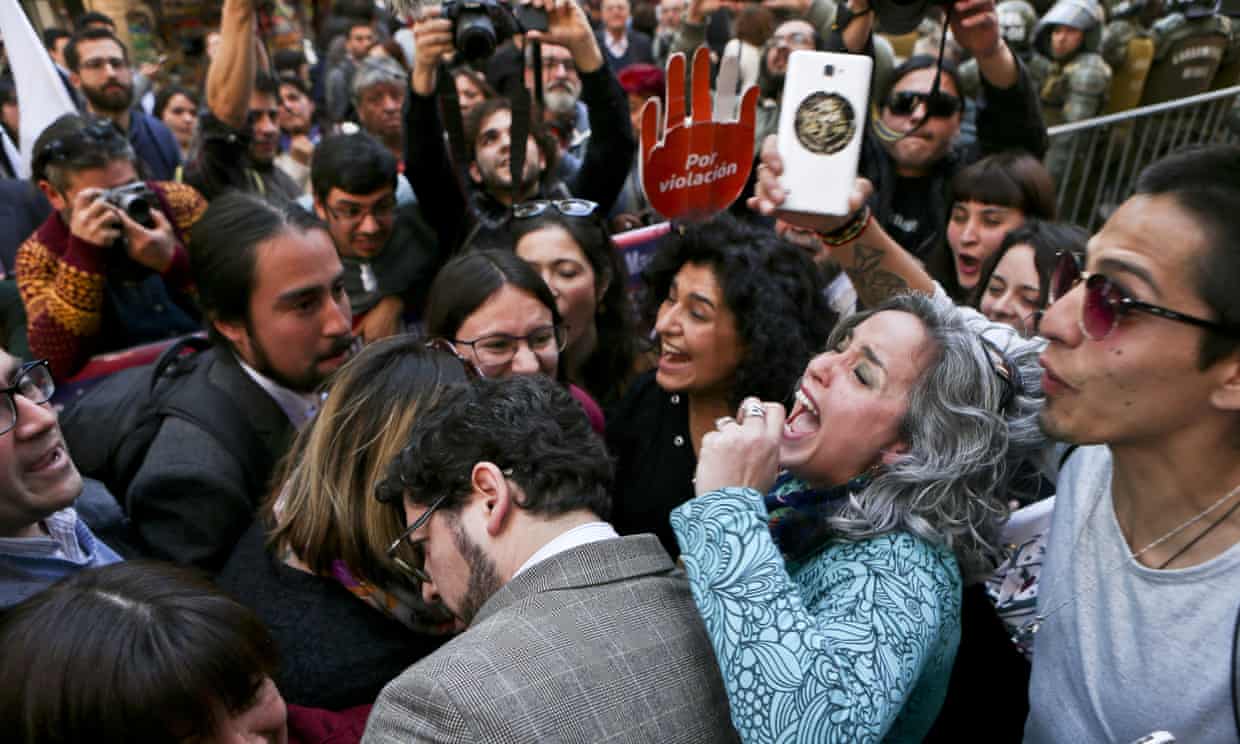
Wafa Bani Mustafa
In South Africa, August 9 is Women’s Day, a national holiday that commemorates the 1956 women’s anti-pass march on the Union Buildings in Pretoria: “Now you have touched the women you have struck a rock: you have dislodged a boulder: you will be crushed.”Wathint’ abafazi, Strijdom! wathint’ abafazi,wathint’ imbokodo,uza kufa!” The women, 20,000 strong, sang that song on that historic day, and it has inspired, and continues to inspire. August is Women’s Month in South Africa and so, with that in mind, globally this month, and along with bad and terrible news, there’s still much to celebrate, especially in Jordan, Lebanon, Chile and India. Within 48 hours this week, Chile eased its ban on abortion and India eliminated the triple talaq instant divorce. Earlier in the month, building on the passage of a progressive law in Tunisia, both Jordan and Lebanon repealed laws that allowed rapists to avoid criminal prosecution by marrying their victims. From Asia to Africa to South America, women are on the move.
On August 4, 2017, Jordanian lawmakers voted to repeal Article 308 of the Jordanian Penal Code. This article was one of the many “marry-your-rapist” laws around the world. Tunisia abolished its version of that law in late July. While many women mobilized over years to end the law, the current leader of the movement to abolish Article 308 has been Wafa Bani Mustafa, a lawyer and Member of the Parliament, head of the Women’s Caucus and Chairperson of the Coalition of Women MPs to Combat Violence against Women. According to Wafa Bani Mustafa, “Article 308 has its roots in French and Latin laws. European countries only fairly recently abolished similar clauses. In France, that happened in 1994; in Italy, 1981. The introduction of such laws in the Arab world happened largely through a mix of colonialism and through the experiences of other countries in the region. Many of the countries used Egypt as an example, which got its laws through the Ottomans and the French colonial involvement in Egypt. But in essence, it is a European product. The important thing to focus on is that such articles have no religious or societal justification – they only discriminate against women.”
For Wafa Bani Mustafa, abolition of Article 308 is part of a multinational feminist decolonization project. Two weeks after the Jordanian lawmakers’ vote, on August 16, 2017, Lebanese lawmakers abolished Article 522 of Lebanon’s penal code, which also allowed a rapist to escape prosecution and punishment if he married his victim.
On Monday, August 21, 2017, a Chilean court ruled that a law easing restrictions on abortion is Constitutional. Michele Bachelet had promised and worked hard to pass the law. According to Bachelet, who had introduced the first version of the law in 2015, “Today, women have won, democracy has won, all of Chile has won.” The law allows women to seek abortions if the fetus is not violable, if the woman’s life is in danger, or if the pregnancy is the result of rape.
The next day, August 22, 2017, India’s Supreme Court ruled that the so-called triple talaq, which allowed men the power to instantly divorce their wives, unconstitutional. Five women brought this case forward. One of them, Shayara Bano, said, “Finally, I feel free today. I have the order that will liberate many Muslim women.”
From Jordan to Lebanon to Chile to India and beyond, women pushed the State to revoke prohibitions that endangered women’s lives. In every instance, the victory this month is both landmark and partial. As Wafa Bani Mustafa explained, “This issue isn’t specific to Jordan or to the Arab world. There are countries around the world that continue to stigmatise women. There are countries that have very developed legislation, yet in practice do not treat women equally. There are countries out there where women suffer way more than they do in the Arab world in similar crimes.” The struggle continues, and women are taking it forward. Now you have touched the women you have struck a rock: you have dislodged a boulder: you will be crushed … in all the languages of the world.

Celebrations in Chile
(Photo Credit 1: Al Jazeera / Wafa Bani Mustafa) (Photo Credit 2: Guardian / Esteban Felix / AP)

